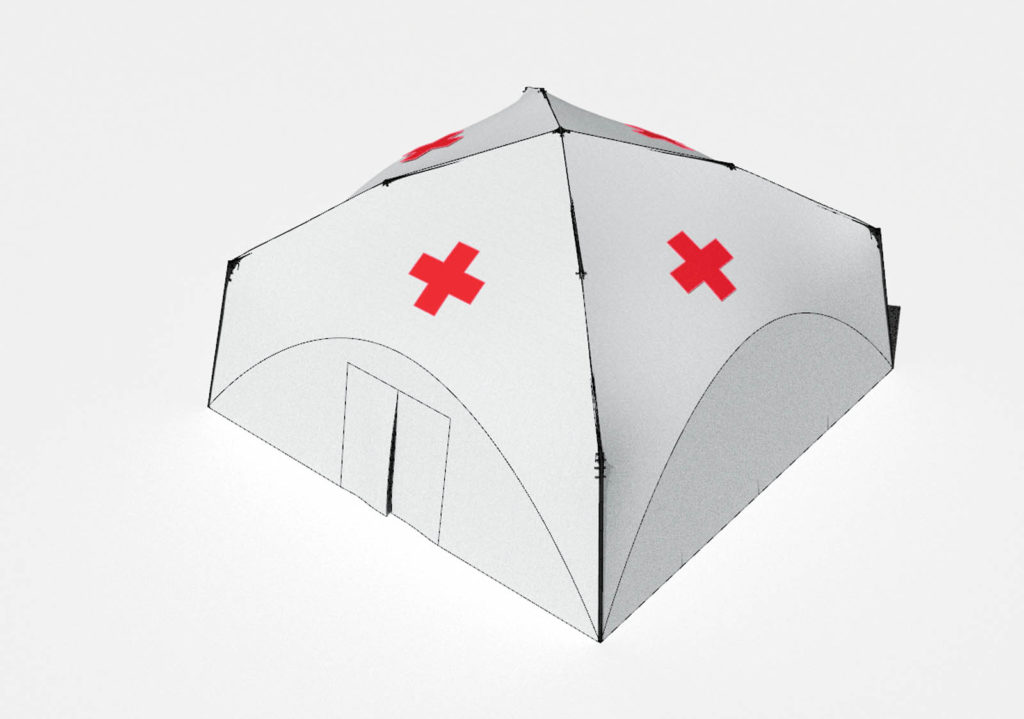
When tents are needed immediately—for disaster response, a public health crisis or a military action—time is of the essence.
A new research effort led by a robotics team from Rensselaer Polytechnic Institute of Troy, N.Y., and Pvilion, a Brooklyn, N.Y.-based manufacturer of rapidly deployable structures, including solar fabric structures, aims to improve the manufacturing process for these structures.
Pvilion was recently awarded a Phase II, $1.5 million Small Business Innovation Research (SBIR) contract by the United States Air Force (USAF) Rapid Sustainment Office (RSO) to deliver its rapidly deployable, flexible Hands-Off Expeditionary Tent (HEXT). In a research project funded by the Department of Defense through its Advanced Robotics for Manufacturing (ARM) Institute, Rensselaer is working with Pvilion to develop a group of self-aware, human-directed robots to assist in manufacturing a product similar to HEXT.
The Rensselaer team will design, build and program a team of small robots that will be capable of holding the shelter fabric, rotating it and pulling it taut while it is being heat sealed together. The robots will work in coordination, guided by humans as well as software and algorithms.

“We’ll know the location of each robot, we’ll know which direction they are pointed, and we will know which direction they are exerting forces,” says Glenn Saunders, a senior research engineer within the Center for Automation Technologies and Systems at Rensselaer. “The swarm behavior happens when the robots begin pulling and rotating the fabric at the sewing machine or heat sealer.”
The project is being expedited within a one-year timeline to address challenges brought about by the pandemic. “The robotic precision will permit Pvilion to increase consistency in its quality assurance processes,” said Pvilion’s Colin Touhey. “From a quality perspective, this will take our products to another level, ensuring Pvilion can ramp up its manufacturing to meet a sudden surge in demand as we have seen happen with the COVID crisis.”
 TEXTILES.ORG
TEXTILES.ORG


